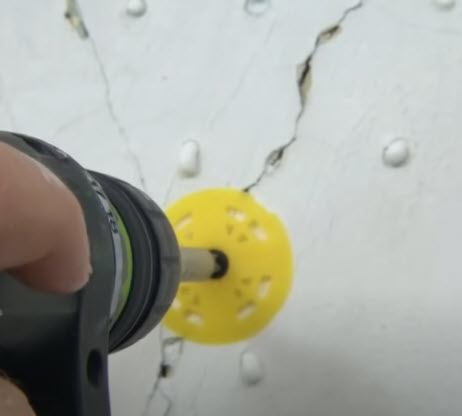How to Fix Cracks in Concrete
How to Fix Cracks in Concrete
Concrete is strong, but over time, it can crack. These cracks can show up in sidewalks, driveways, garage floors, and patios. Small cracks might not seem like a big deal, but if left alone, they can grow bigger. Water can get inside, freeze, and make the cracks worse. That’s why it’s important to fix them as soon as you see them. Fixing concrete cracks not only helps your space look better, but it also keeps people safe and stops bigger damage later.
Cracks in concrete happen for many reasons. Heavy vehicles, changes in weather, or even tree roots growing under the concrete can cause it to break. Some cracks are tiny, while others are wide and deep. The good news is that you can fix most cracks with the right tools and products. Whether you’re fixing a sidewalk or a driveway, superior concrete contractors recommend using high-quality concrete service methods to make sure your repair lasts a long time.

Why Fixing Concrete Cracks Is Important
Stops Water Damage
When water gets into concrete cracks, it can cause serious problems. In cold weather, that water can freeze. When water freezes, it grows, which can make the crack bigger. Over time, this can break apart your concrete. Fixing the crack keeps water out and stops it from making things worse.
Keeps Surfaces Safe
Cracks in driveways, sidewalks, and floors can be dangerous. People can trip and fall. Bikes, strollers, or skateboards can get stuck. Fixing cracks helps make the area safer for everyone—kids, adults, and pets too.
Makes Concrete Last Longer
Cracks let in water and dirt, which wear down the concrete over time. If you fix the cracks early, your concrete will stay strong and last longer. You won’t have to spend a lot of money replacing it later. That’s why it’s smart to fix cracks right away using the right concrete service.
Types of Concrete Crack Repairs
Flexible Concrete Caulk
This type of filler is perfect for small cracks. It stays soft and can stretch when the concrete moves, which helps keep the crack sealed over time.
Polyurea Crack Filler
Polyurea dries very fast and is great for places like driveways and garages. It is strong, long-lasting, and stops water from getting in.
Epoxy Crack Repair
Epoxy acts like glue and makes the concrete even stronger than before. It’s great for wide or deep cracks and is often used on garage floors or basement floors.
Concrete Patch
This is a thick material used for wide or deep cracks. It hardens to form a smooth, strong surface.
Mortar or Grout Filler
These are used to fill cracks in concrete walls or floors. They help keep everything solid and in place.
Best Ways to Fix Cracks
Outdoor Concrete (Driveways & Sidewalks)
Outdoor concrete takes a lot of pressure from cars, people, and weather. For these areas, strong products like polyurea or a concrete patch work best. These hold up well even when it rains or snows.
Indoor Concrete (Garage or Basement Floors)
Indoor cracks don’t face harsh weather, but they still need good sealing. Use epoxy or flexible caulk to stop moisture and dust from coming up through the crack. This helps your floor stay clean and dry.
Concrete Crack Sizes – Narrow vs. Wide
How to Fix Narrow Cracks
Narrow cracks are small but still need fixing. Clean the crack first. Then use liquid filler or flexible caulk. Squeeze it into the crack and smooth it out.
How to Fix Wide Cracks
Wide cracks need a stronger fix. Use a concrete patch or a mix of sand and cement. These fillers stay in place and help keep the concrete strong for years.
Common Concrete Repairs
Driveway Crack Repair
Driveways handle lots of traffic, so cracks should be repaired quickly. Clean the area, fill the crack with a strong filler like polyurea, and seal it to protect it from rain and wear.
Garage Floor Crack Repair
Garage floors see heavy tools, cars, and storage. Clean the crack, apply epoxy, and let it dry. This will stop dust, water, and oil from getting in.
Sidewalk Crack Repair
For small cracks in sidewalks, flexible caulk works well. Big sidewalk cracks might need patching. Either way, fixing them prevents trips and keeps the walkway safe.
Should You DIY or Call a Pro?
Time and Cost
If you have one or two small cracks, fixing them yourself can save time and money. But for big cracks or large areas, it may be cheaper in the long run to hire experts like Superior Concrete Contractors. They’ll get the job done fast and right the first time.
Look and Strength
Professional concrete service makes repairs look better and last longer. If you care about appearance or need the surface to handle heavy use, a pro can help you get the best results.
When to Call Superior Concrete Contractors
If you see wide cracks, crumbling spots, or if your concrete is sinking, it’s time to call the experts. Superior Concrete Contractors know how to handle tough jobs. Their trained team uses high-quality materials and tools to make sure your concrete stays strong and looks great. Their concrete service is reliable, fast, and affordable.
How Long Does Concrete Crack Repair Last?
A good crack repair can last for many years. It depends on the product you use and how well it’s applied. Using a sealer after the repair also helps stop new cracks from forming. For the best results, follow directions or hire professionals.
How to Repair Cracks in Concrete – Step-by-Step
- Clean the Crack
Use a wire brush or vacuum to remove loose pieces and dirt. - Choose the Right Product
Pick caulk for small cracks or epoxy/patch for larger ones. - Fill the Crack Properly
Follow the instructions on the product. Fill the crack completely. - Seal and Let It Dry
Apply a sealer to protect the area. Let it dry for the time listed on the product.
